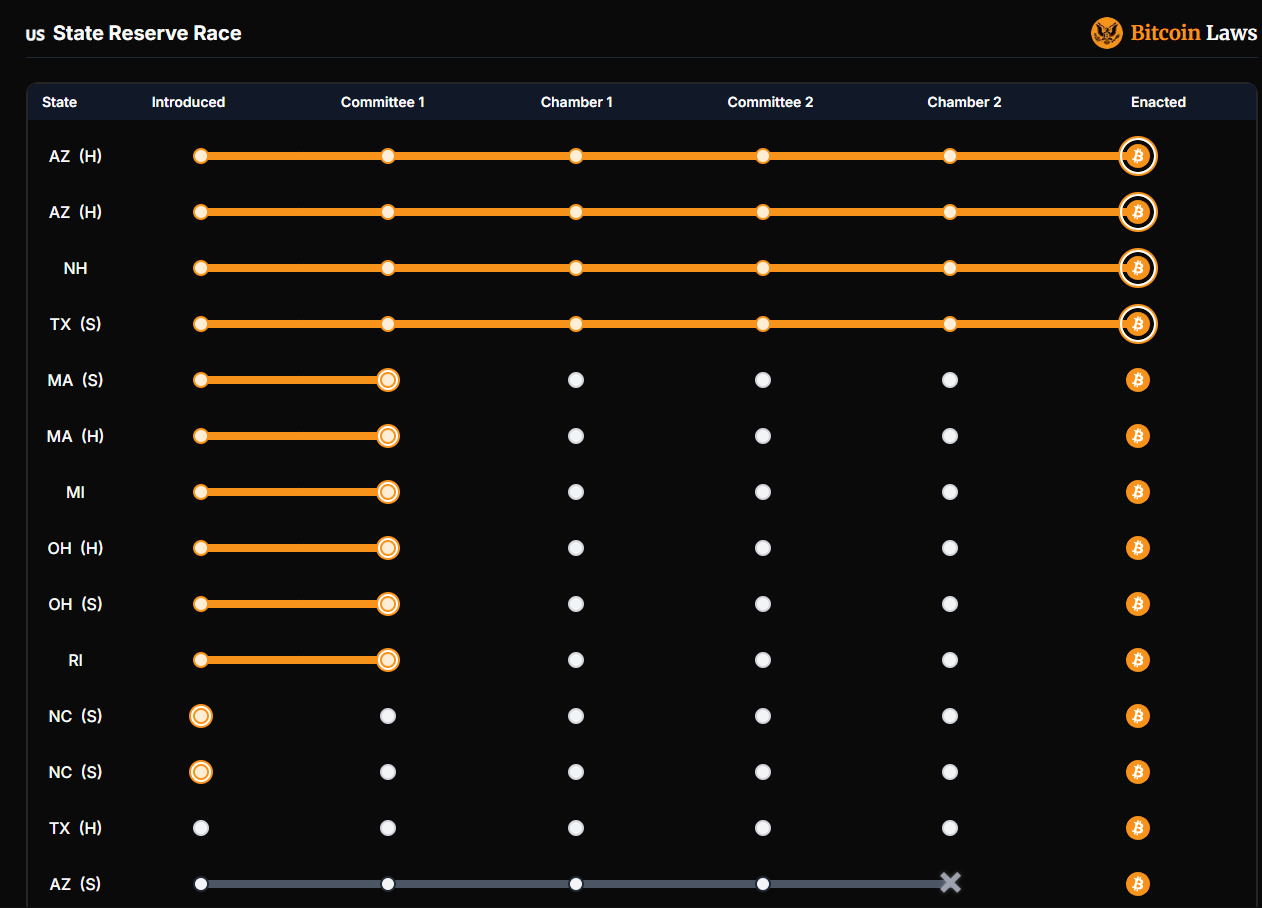A race for digital state reserves: Several U.S. states are planning or have already enacted Bitcoin reserves - with Texas being the latest example. Here is an overview of the various measures.
The movement to establish state-level Bitcoin reserves in the U.S. is gaining strong momentum. According to bitcoinlaws.io, more than 26 states are currently pursuing related legislative initiatives, several of which are already in effect - including New Hampshire, Arizona, and Texas. The aim is typically to allocate up to 5% of public funds to Bitcoin, ideally sourced from seized or specially acquired holdings.
New Hampshire and Arizona: pioneers of reserve initiatives
New Hampshire made history in May 2025 by becoming the first U.S. state to pass legislation establishing a strategic Bitcoin reserve. This allows the state treasury to invest up to 5% in digital assets with a market capitalization exceeding USD 500 billion - which currently applies exclusively to Bitcoin. Shortly after, Arizona followed suit with a reserve funded by seized cryptocurrencies and unused state property.
Governor Greg Abbott then signed Texas SB 21, officially making Texas the third state to set up a formal Bitcoin reserve. The legislation permits the State Comptroller to build a reserve financed through tax revenue, airdrops, or confiscated crypto assets and mandates regular evaluation and transparency.
Nationwide movement
Beyond individual states, bitcoinlaws.io reports that Texas alone has 14 Bitcoin-related bills in progress, several of which relate to reserve-building. Nationwide, there are now 47 legislative proposals across 26 states, from Florida to North Carolina to Alabama. While some have been implemented, others have been rejected or remain under committee review.

Assessing the momentum
These developments fit into a broader national dynamic. New Hampshire and Arizona have not only sent symbolic messages but also led the way in demonstrating that states can leverage Bitcoin as a fiscal tool and hedge against inflation. Texas recently followed suit with clearly defined budget rules.
If this trend continues, we could see a partial decentralization of the national Bitcoin strategy: states would become more than mere observers and could actively contribute to building digital currency reserves. In the future, coordinated purchasing actions and pilot reserve programs are likely - potentially establishing Bitcoin as a lasting component of public financial planning.








